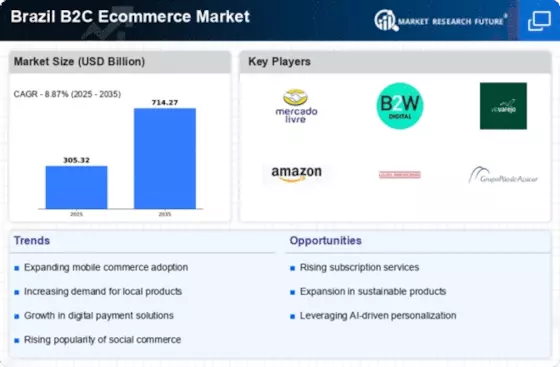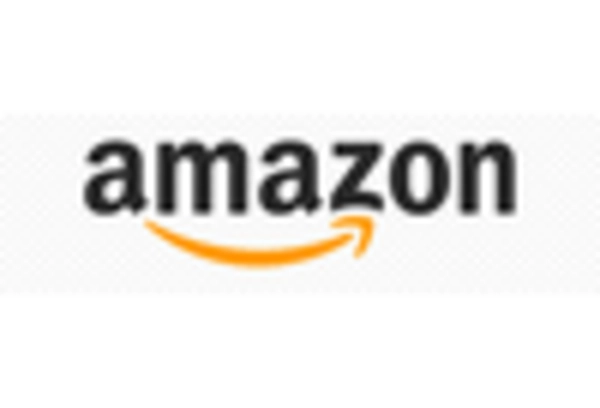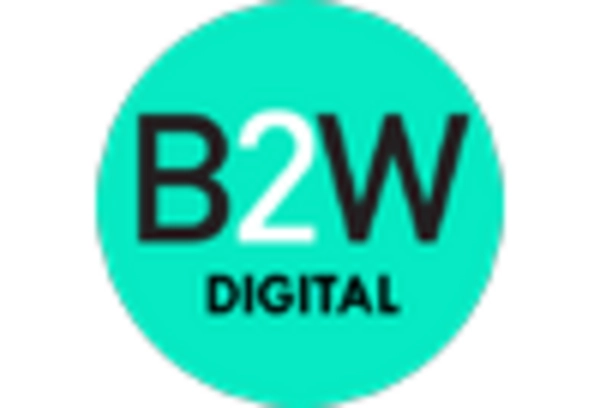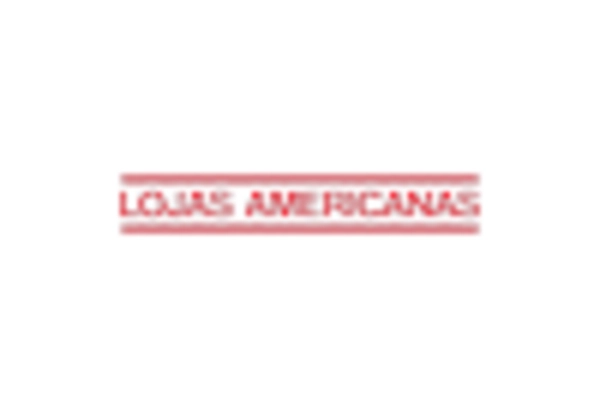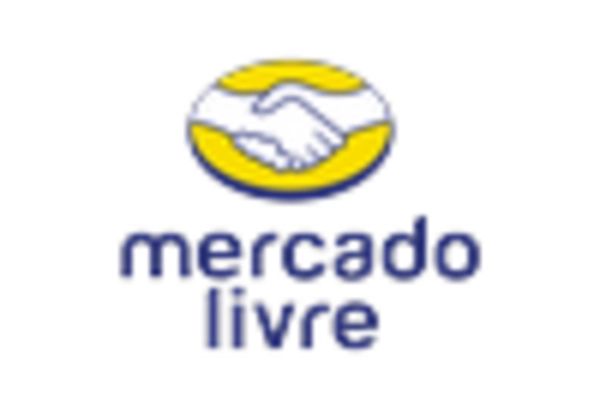The B2C Ecommerce Market in Brazil is characterized by a dynamic competitive landscape, driven by rapid digital transformation and evolving consumer preferences. Key players such as Mercado Livre (BR), Magazine Luiza (BR), and B2W Digital (BR) are at the forefront, each adopting distinct strategies to enhance their market positioning. Mercado Livre (BR) continues to innovate with its logistics network, focusing on same-day delivery options, which appears to resonate well with consumers seeking convenience. Meanwhile, Magazine Luiza (BR) emphasizes a hybrid model that integrates physical stores with its online platform, thereby enhancing customer engagement and retention. B2W Digital (BR) is leveraging partnerships with local brands to expand its product offerings, indicating a trend towards localized e-commerce solutions that cater to regional preferences.
The market structure is moderately fragmented, with several players vying for market share. Key tactics employed by these companies include localizing supply chains and optimizing logistics to reduce delivery times. This competitive environment is further influenced by the collective actions of major players, which often set benchmarks for service quality and customer experience. As these companies continue to refine their operational strategies, the competitive dynamics are likely to evolve, fostering an environment where agility and responsiveness are paramount.
In December 2025, Mercado Livre (BR) announced a strategic partnership with a leading logistics firm to enhance its delivery capabilities across Brazil. This move is significant as it not only aims to reduce delivery times but also positions Mercado Livre (BR) as a leader in customer satisfaction, potentially increasing its market share. The partnership underscores the importance of logistics in the e-commerce sector, where timely delivery is a critical factor influencing consumer choices.
In November 2025, Magazine Luiza (BR) launched an AI-driven recommendation system on its platform, aimed at personalizing the shopping experience for users. This initiative is likely to enhance customer engagement by providing tailored product suggestions, thereby increasing conversion rates. The integration of AI technology reflects a broader trend in the market towards leveraging data analytics to improve customer interactions and drive sales.
In October 2025, B2W Digital (BR) expanded its marketplace by incorporating a wider range of local artisans and small businesses, thereby diversifying its product range. This strategic move not only supports local economies but also appeals to consumers increasingly interested in unique, locally-sourced products. By fostering a community-oriented marketplace, B2W Digital (BR) is likely to strengthen its brand loyalty and differentiate itself from competitors.
As of January 2026, the competitive trends in the B2C Ecommerce Market are increasingly defined by digitalization, sustainability, and the integration of AI technologies. Strategic alliances are becoming more prevalent, as companies recognize the value of collaboration in enhancing operational efficiencies and expanding market reach. Looking ahead, competitive differentiation is expected to shift from price-based strategies to a focus on innovation, technological advancements, and supply chain reliability. This evolution suggests that companies that prioritize these aspects will likely emerge as leaders in the increasingly competitive landscape.


